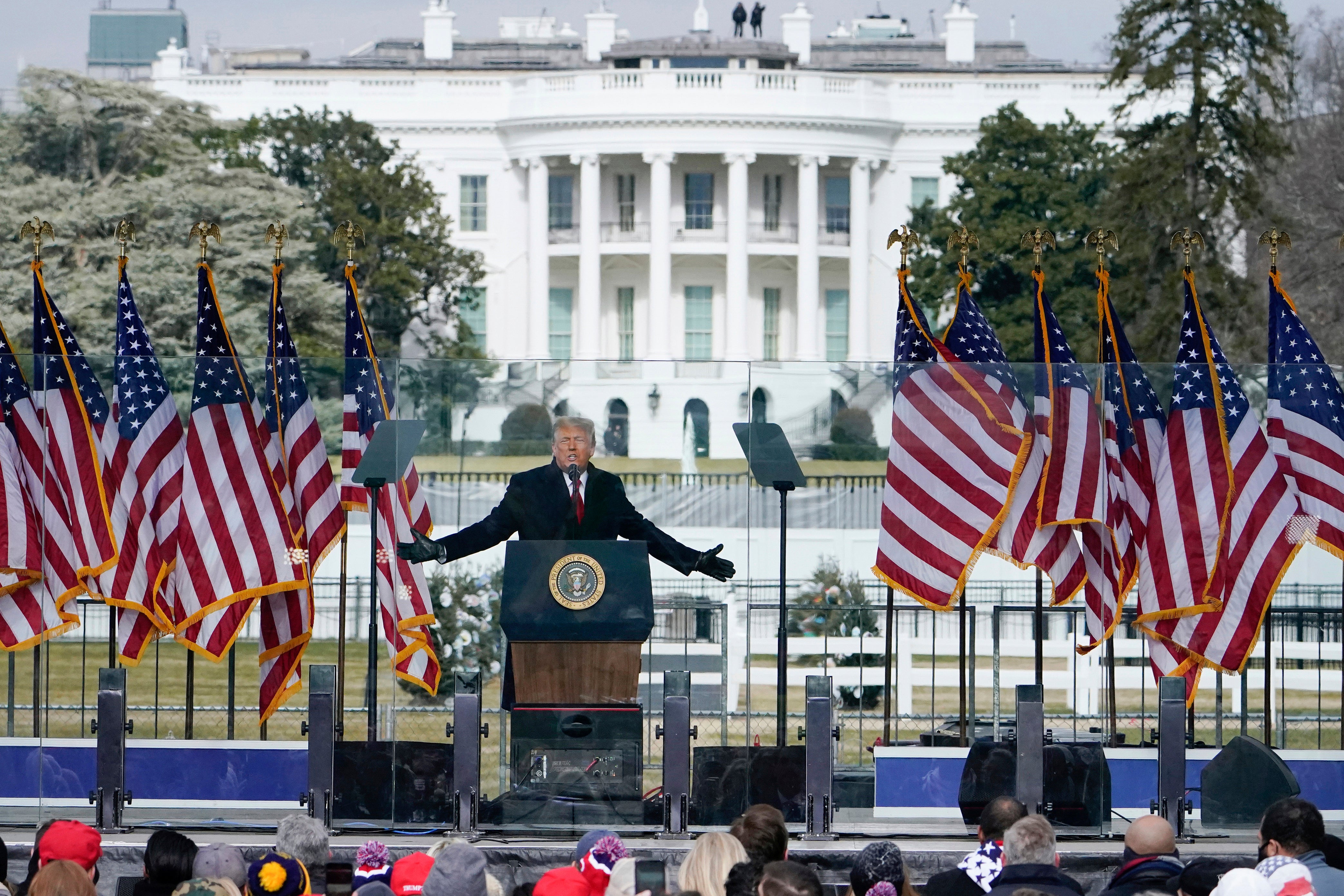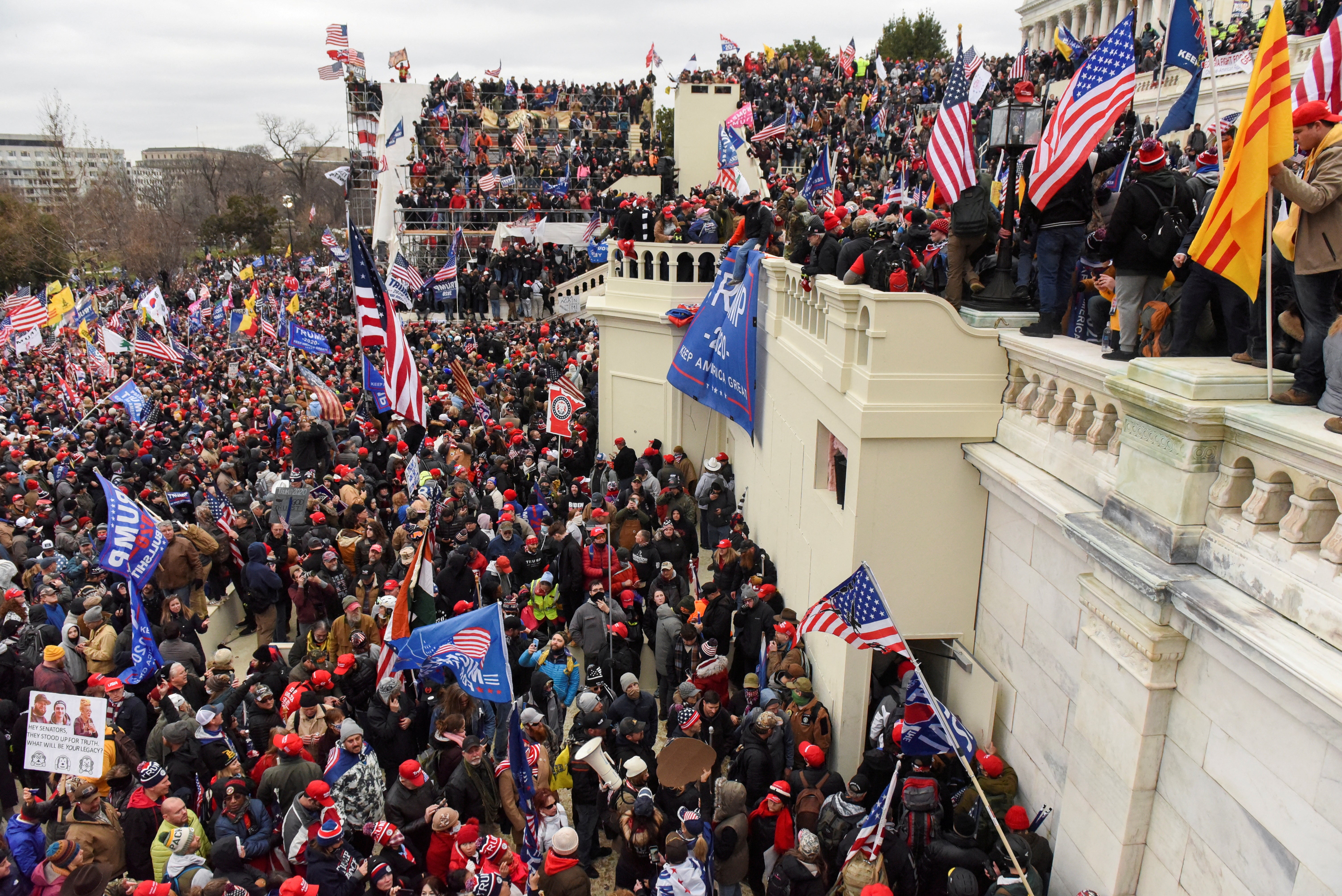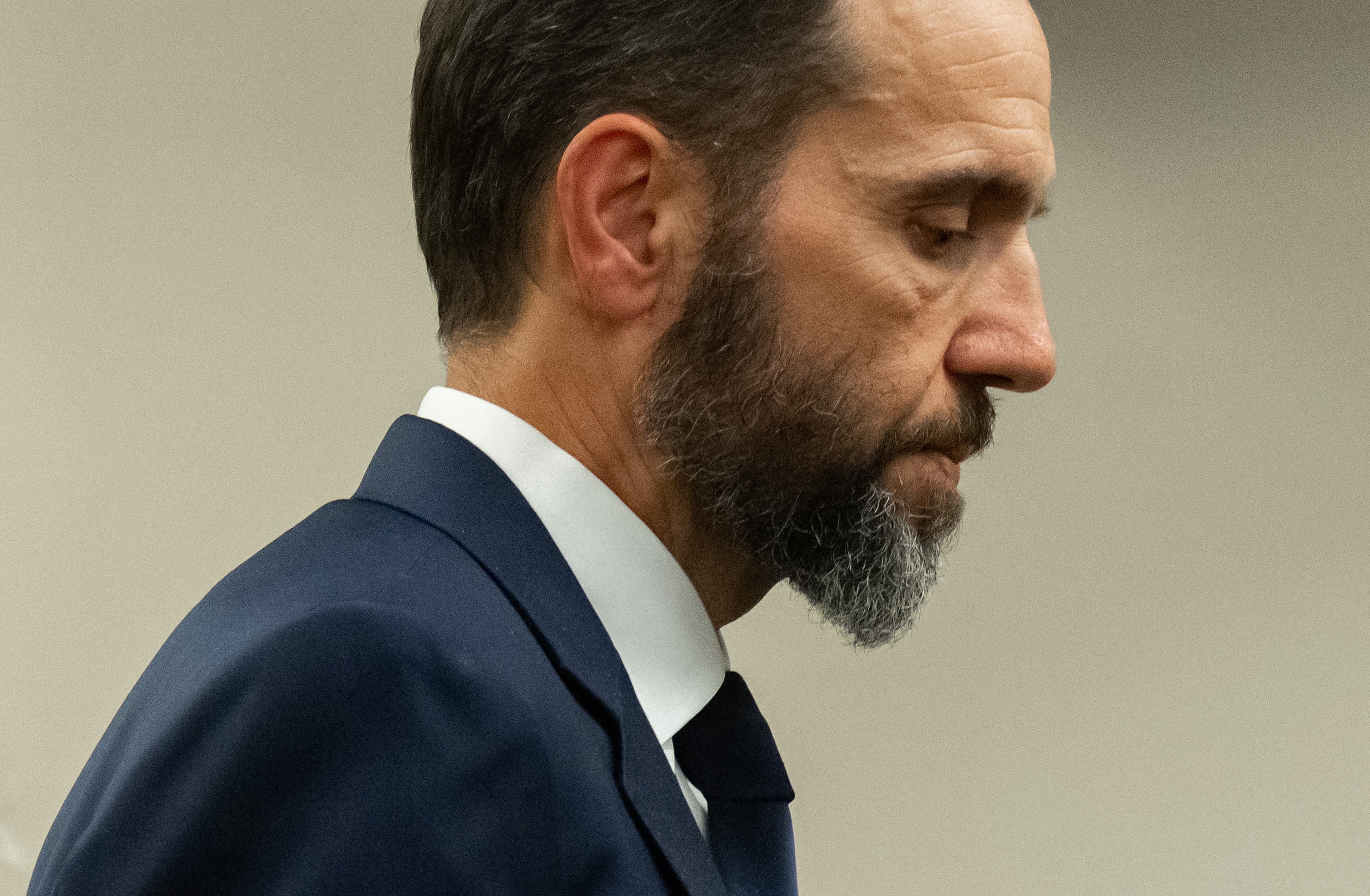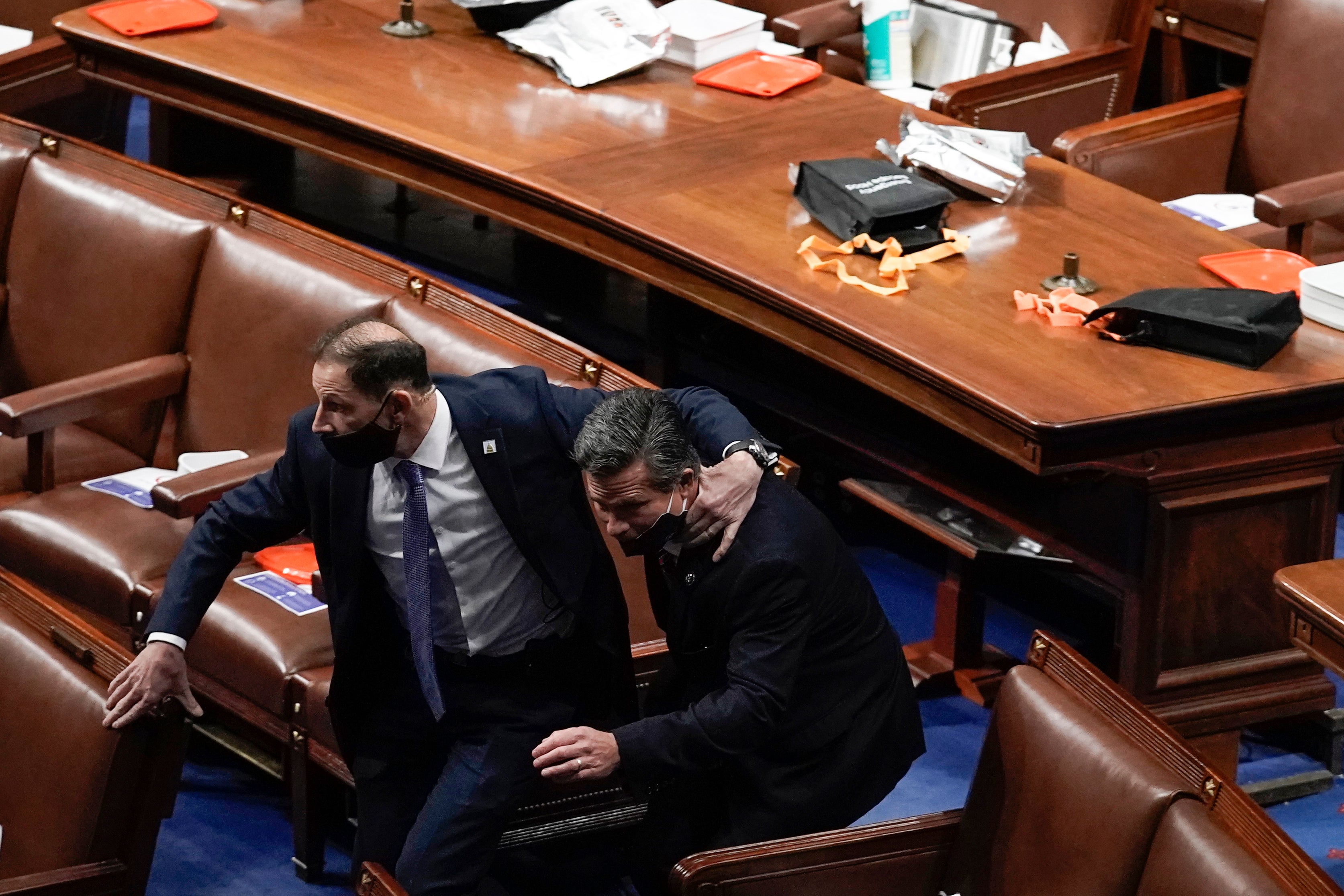Why didn’t Jack Smith charge Trump with insurrection?
Evidence shows Trump ‘caused and benefited’ from the violent attack. The law and the country weren’t prepared for a case showing how a sitting president, not an outside force, could be responsible, Alex Woodward reports
Your support helps us to tell the story
From reproductive rights to climate change to Big Tech, The Independent is on the ground when the story is developing. Whether it's investigating the financials of Elon Musk's pro-Trump PAC or producing our latest documentary, 'The A Word', which shines a light on the American women fighting for reproductive rights, we know how important it is to parse out the facts from the messaging.
At such a critical moment in US history, we need reporters on the ground. Your donation allows us to keep sending journalists to speak to both sides of the story.
The Independent is trusted by Americans across the entire political spectrum. And unlike many other quality news outlets, we choose not to lock Americans out of our reporting and analysis with paywalls. We believe quality journalism should be available to everyone, paid for by those who can afford it.
Your support makes all the difference.Why wasn’t Donald Trump ever charged with the crime of insurrection?
It’s a question that has been looming over the federal prosecution of the president-elect, with his allies and supporters using the fact that he wasn’t to downplay the charges against him as well as the January 6 attack itself.
In his final report on Trump’s attempts to overturn the 2020 presidential election, former special counsel Jack Smith revealed that his office “considered” but “ultimately opted against” accusing Trump of committing or enabling an insurrection against the government, fearing the charges would open a minefield of litigation that could derail the entire case.
Smith explains there was just not enough legal groundwork over the last century to properly define “insurrection” and “incitement” to define what happened on January 6, despite judges across the country routinely labeling that — and putting the blame squarely on Trump.
“The office recognized why courts described the attack on the Capitol as an ‘insurrection,’ but it was also aware of the litigation risk that would be presented by employing this long-dormant statute,” Smith explained.

Case law reviewed by his office found that an insurrection “typically involves overthrowing a sitting government, rather than maintaining power, which could pose another challenge to proving beyond a reasonable doubt that Mr. Trump’s conduct on January 6 qualified as an insurrection given that he was the sitting president at that time,” the report says.
But the evidence fit, according to Smith.
Evidence showed that violence “was foreseeable” to Trump, and “he caused it, that it was beneficial to his plan to interfere with the certification, and that when it occurred, he made a conscious choice not to stop it and instead to leverage it for more delay,” according to the report.
Smith even believed his office had enough incidence to prove Trump “incited” rioters with his January 6 speech at the Ellipse in Washington, D.C.
But Smith did not find any explicit evidence showing that Trump and his alleged co-conspirators had planned for that to happen, and had instead exploited what his bogus narrative of election fraud had inspired.
And prosecutors could not find any case in which a criminal defendant was charged with insurrection “for acting within the government to maintain power, as opposed to overthrowing it or thwarting it from the outside.”
Charging Trump with insurrection in that way “would have been a first, which further weighed against charging it, given the other available charges, even if there were reasonable arguments that it might apply,” Smith wrote.

The Civil War-era Insurrection Act states that “whoever incites, sets on foot, assists, or engages in any rebellion or insurrection against the authority of the United States or the laws thereof, or gives aid or comfort thereto.”
Last year, several states came close to holding the former president accountable under those terms.
The Supreme Court ultimately reversed a Colorado state court ruling that found the president ineligible for the presidency under the scope of the 14th Amendment, which bars anyone who has sworn an oath to uphold the Constitution and who “engaged in insurrection or rebellion” from holding public office.
The 14th Amendment was among a suite of civil rights amendments enacted in the volatile aftermath of the Civil War. It was intended to grant equal protection under the law to all citizens, including formerly enslaved people, with a broadly written clause aimed at preventing Confederates from returning to a government they were in rebellion against.
In 2023, a lawsuit filed by Citizens for Responsibility and Ethics in Washington on behalf of a group of five Republican and independent voters in Colorado argued that Trump failed that test, rendering him “constitutionally ineligible to appear on any Colorado ballot as a candidate for federal or state office”.
Smith cited that lawsuit in his final report.

Smith resigned from the Justice Department on January 10 after submitting his two-volume report to Attorney General Merrick Garland, whose office entered a protracted legal battle with a Trump-appointed judge over the release of the report.
Smith’s resignation was disclosed in a 24-word footnote, on the third page of an 11-page court filing — marking an anticlimactic end to the most significant prosecutions in Justice Department history, while Trump’s allies threaten him with prosecutions of their own.
The report — published just days before Trump returns to the White House — follows Smith’s post-election decision to end his two mammoth criminal cases against the former president, effectively throwing in the towel after a years-long attempt to prosecute Trump for 44 crimes, spelled out in hundreds of pages of evidence.
Neither case made it to trial.
A federal grand jury indictment in 2023 charged Trump with conspiracy and obstruction for his efforts to reverse his election loss and his failure to stop a mob of his supporters from breaking into the U.S. Capitol on January 6, 2021, as lawmakers convened to certify Joe Biden’s victory.
Trump was separately charged in 2023 with mishandling reams of classified documents hoarded inside Mar-a-Lago and then allegedly obstructing attempts from federal authorities to get them back.
The case against his co-defendants is ongoing, but Trump is widely expected to pardon the two longtime Trump employees who were criminally charged alongside him.
Smith’s decision to end the cases was inevitable, after months of delays, appeals, Supreme Court decisions and, ultimately, Trump’s election victory, which hurled the courts and the Justice Department into unprecedented territory.
On the advice of the agency’s own counsel, which has long held that a sitting president cannot be prosecuted, Smith moved to close the cases altogether.
Without any verdicts delivered or sentences issued, the cases stood no chance of surviving Trump’s administration.

Trump routinely conflates the prosecution and litigation against him as an attack on the American people and the rule of law itself and has long viewed his election as his exoneration. He spent his 2024 campaign raging against judges and prosecutors, including Smith, who he pledged to fire “within two seconds” of taking office if his work continued into his administration. Trump has said Smith should be “thrown out of the country” and believed that he should be criminally indicted for his work.
The one criminal trial Trump endured resulted in a jury’s unanimous 34-count guilty verdict. He was sentenced on January 10. Unlike his federal cases, Trump cannot issue himself a pardon to toss his convictions in that case, and the consequence-free sentence from New York Justice Juan Merchan ensures that Trump will enter the office as the first-ever president convicted of a crime.
Trump, meanwhile, is hoping to staff his Justice Department with his own criminal defense attorneys and other lawyers who have represented him and his campaign.

Join our commenting forum
Join thought-provoking conversations, follow other Independent readers and see their replies
Comments